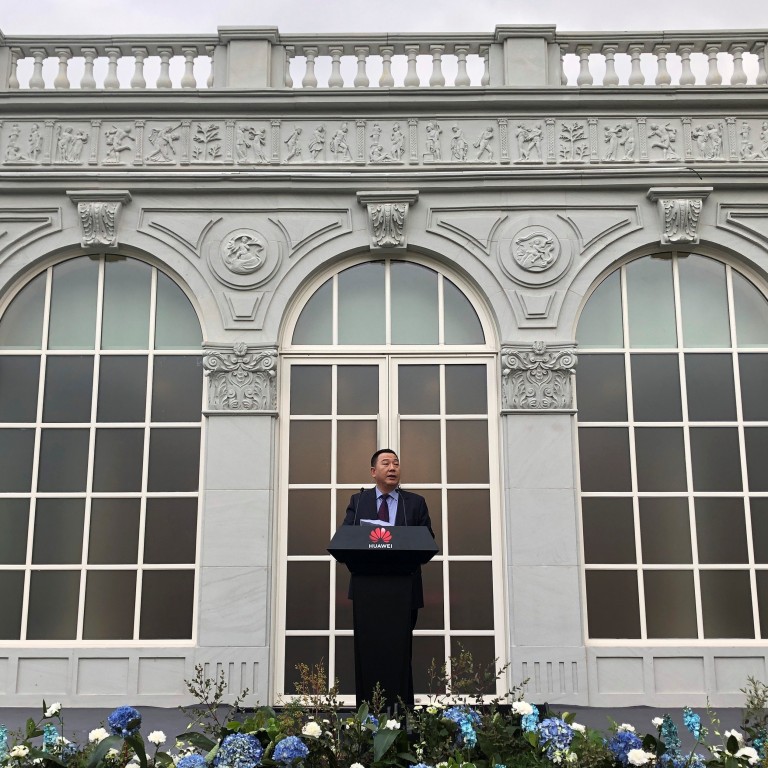
US-China tech war: Huawei pushes licensing of 5G mobile technology amid struggles with Washington’s trade sanctions
- Telecommunications giant Huawei ‘will not seek a royalty rate higher than US$2.50’ per 5G smartphone
- The company’s revenue from patent licensing between 2019 and 2021 was estimated to be ‘about US$1.2 billion to US$1.3 billion’
“We believe licensing should balance return on investment and cost pressures of implementation in the industry,” Ding said. “For every phone that complies with 5G standards, we will not seek a royalty rate higher than US$2.5 per unit.”
Huawei hopes that the rate “will give implementers of 5G technology a clear number they can rely on for cost estimation and investment decisions”, he said. “Our goal is to promote broader adoption of 5G across all industries.”
Beyond that situation, Huawei’s Ding on Tuesday described how the company has been active in licensing activities. “This isn’t just from telecoms infrastructure and smart devices,” he said. “We have also started licensing IoT [Internet of Things] technologies for vertical industries. The goal is to enable more businesses to adopt digital technology and upgrade their industry.”
US imposes new 5G limits on Huawei suppliers
At its IP white paper launch on Tuesday, Huawei also announced that it has entered into more than 100 patent licence and cross-licence agreements with major global information and communications technology companies across Europe, the US, Japan, and South Korea.
“Huawei is an active member of more than 400 standards organisations and industry alliances,” said Song Liuping, Huawei’s chief legal officer. “Every year, we submit more than 6,000 contributions to international standards organisations.”

